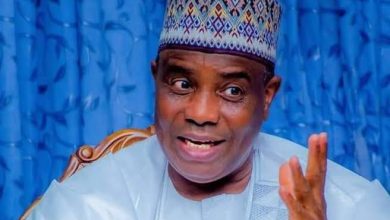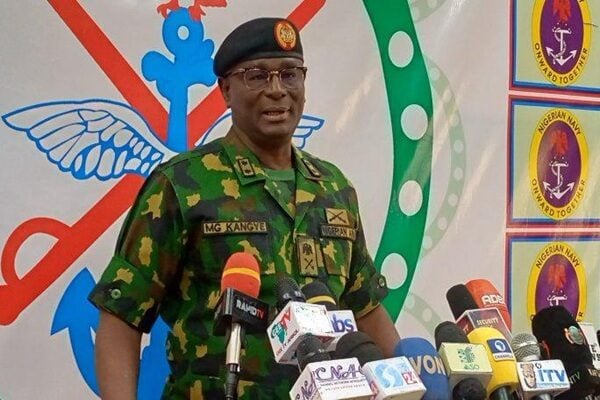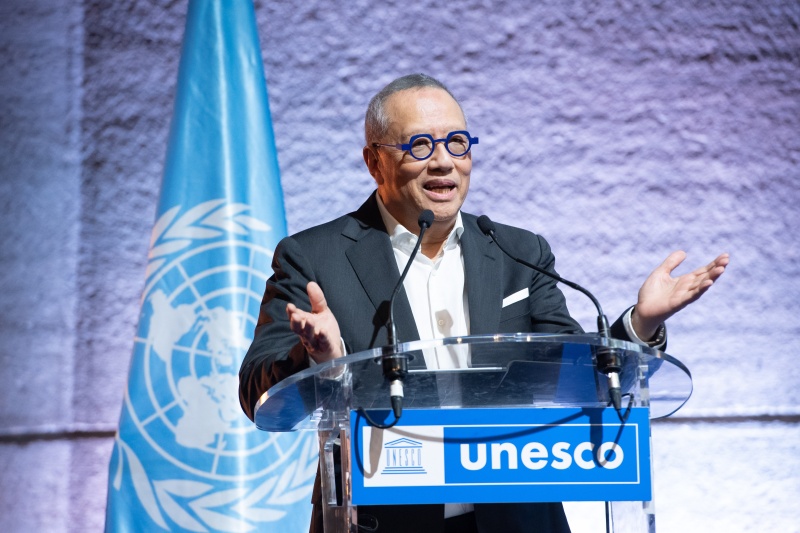In a bold declaration that has sparked widespread discussion across Nigeria’s political landscape, former Sokoto State Governor and current Senator, Aminu Tambuwal, has vowed to lead efforts to oust President Bola Ahmed Tinubu from office in the 2027 general elections. Speaking at a recent political gathering in Sokoto, Tambuwal, a prominent figure in the Peoples Democratic Party (PDP), expressed confidence that the opposition would rally together to defeat the ruling All Progressives Congress (APC) and reclaim the presidency. His remarks have reignited debates about the future of Nigeria’s political leadership, the state of the opposition, and the challenges facing the Tinubu administration as it navigates its first term.
Tambuwal’s Bold Assertion
During the event, Tambuwal, who represented Sokoto South in the Senate and previously served as Speaker of the House of Representatives, did not mince words about his party’s ambitions. “Come 2027, we will send Tinubu out of office,” he declared, addressing a crowd of PDP supporters. His statement was met with enthusiastic applause, signaling strong grassroots support for his call to action. Tambuwal emphasized that the PDP is actively strategizing to present a united front, leveraging the perceived shortcomings of the current administration to galvanize voters.
Tambuwal’s comments come at a time when Nigeria is grappling with significant economic and security challenges. Rising inflation, fuel price hikes, and persistent insecurity in various parts of the country have fueled public discontent, providing fertile ground for opposition parties to criticize the APC-led government. Tambuwal pointed to these issues as evidence of the need for a change in leadership, arguing that the PDP is better positioned to address Nigeria’s pressing problems.
Contextualizing Tambuwal’s Political Journey
To understand the weight of Tambuwal’s statement, it is essential to examine his political trajectory. Born on January 10, 1966, in Tambuwal, Sokoto State, Aminu Waziri Tambuwal has been a significant player in Nigerian politics for over two decades. A trained lawyer, Tambuwal began his political career in 2003 when he was elected to the House of Representatives. His rise to prominence came in 2011 when he was elected Speaker of the House, a position he held until 2015. During his tenure, he gained a reputation as a pragmatic and consensus-building leader, navigating the complexities of Nigeria’s diverse political landscape.
In 2015, Tambuwal defected from the PDP to the APC, citing internal crises within the PDP as his reason for leaving. His defection was a significant blow to the PDP, as he was a high-profile figure with substantial influence in the North-West geopolitical zone. As governor of Sokoto State from 2015 to 2023, Tambuwal implemented several developmental projects, including improvements in education, healthcare, and infrastructure, which bolstered his popularity in the region. However, in 2018, he returned to the PDP, a move that surprised many but was seen as a strategic decision to align with the opposition’s growing momentum ahead of the 2019 elections.
Tambuwal’s presidential ambition became evident when he contested the PDP’s presidential primary in 2022. Although he stepped down during the primaries to support Atiku Abubakar, the party’s eventual candidate, his political influence within the PDP remains strong. Now a senator, Tambuwal continues to wield significant clout, particularly in the North-West, a region that has historically played a decisive role in Nigerian elections due to its large voting population.
The PDP’s Strategy for 2027
Tambuwal’s declaration is not an isolated statement but part of a broader strategy by the PDP to reposition itself as a formidable force ahead of the 2027 elections. The party has faced significant challenges since losing the presidency in 2015, including internal divisions, defections, and electoral losses. However, recent developments suggest that the PDP is working to overcome these hurdles and present a united front.
One of the key elements of the PDP’s strategy is to capitalize on public dissatisfaction with the Tinubu administration. Since assuming office in May 2023, President Tinubu has implemented bold economic reforms, including the removal of fuel subsidies and the unification of the naira’s exchange rates. While these policies were intended to stabilize the economy and attract foreign investment, they have led to immediate hardships for many Nigerians. The cost of living has soared, with food prices and transportation costs reaching unprecedented levels. Tambuwal and other PDP leaders have seized on this discontent, framing the APC’s policies as anti-poor and out of touch with the realities of ordinary Nigerians.
In his speech, Tambuwal outlined the PDP’s commitment to addressing these economic challenges. He promised that a PDP-led government would prioritize job creation, poverty reduction, and social welfare programs. “We will bring back the Nigeria where people can afford to eat, where businesses can thrive, and where our children can go to school without fear,” he said. These promises resonate with a population weary of economic hardship and seeking tangible solutions.
The PDP is also focusing on rebuilding its grassroots structures across the country. Tambuwal emphasized the importance of mobilizing party members at the ward, local government, and state levels to ensure a robust campaign in 2027. The party’s leadership is aware that winning the presidency will require a strong presence in key battleground states, particularly in the North and South-West, where the APC has traditionally held sway.
Challenges Facing the Tinubu Administration
Tambuwal’s vow to unseat Tinubu cannot be fully understood without examining the challenges facing the current administration. Since taking office, President Tinubu has faced a barrage of criticism over his handling of the economy and security. The removal of fuel subsidies, while lauded by some economists as a necessary step to reduce government expenditure, has led to a sharp increase in fuel prices, which in turn has driven up the cost of goods and services. Inflation rates have climbed steadily, with the National Bureau of Statistics reporting a year-on-year inflation rate of over 33% in mid-2025, one of the highest in recent history.
Security remains another critical issue. Despite efforts to combat insurgency, banditry, and kidnapping, particularly in the North-West and North-East, these challenges persist. The continued activities of groups like Boko Haram, as well as the rise of banditry in states like Zamfara, Katsina, and Sokoto, have raised questions about the effectiveness of the government’s security strategy. Tambuwal, whose home state of Sokoto has been severely affected by banditry, has used this issue to underscore the need for a change in leadership.
Furthermore, the Tinubu administration has faced criticism over its handling of youth unemployment and education. With millions of young Nigerians out of work and many schools struggling with inadequate funding, the government’s ability to deliver on its promises of job creation and educational reform has been called into question. These issues provide ammunition for opposition figures like Tambuwal, who are positioning themselves as champions of the masses.
The Role of the North-West in 2027
The North-West geopolitical zone, where Tambuwal hails from, is likely to play a pivotal role in the 2027 elections. Comprising seven states—Kaduna, Kano, Katsina, Kebbi, Jigawa, Sokoto, and Zamfara—the region has the highest number of registered voters in Nigeria. In past elections, the North-West has been a stronghold for the APC, largely due to the influence of figures like former President Muhammadu Buhari and other prominent northern leaders. However, the PDP has been making inroads in the region, capitalizing on growing dissatisfaction with the APC.
Tambuwal’s deep ties to the North-West give him a unique advantage in mobilizing support. As a former governor and current senator, he has built a strong political network in Sokoto and neighboring states. His ability to connect with both traditional and modern political structures, including emirs, religious leaders, and youth groups, makes him a formidable figure in the region. By positioning himself as a leading voice in the PDP’s campaign, Tambuwal is likely aiming to consolidate support in the North-West while forging alliances with other regions to build a national coalition.
The Opposition’s Broader Challenges
While Tambuwal’s declaration has energized PDP supporters, the opposition faces significant challenges in its quest to unseat Tinubu. One of the most pressing issues is the need for unity within the PDP. The party has been plagued by factionalism and infighting, particularly since the 2023 elections, when internal divisions weakened its campaign. The rivalry between Atiku Abubakar and other aspirants, as well as disputes over zoning and leadership positions, have created tensions that the party must resolve to mount a successful challenge in 2027.
Additionally, the PDP must contend with other opposition parties, such as the Labour Party and the New Nigeria People’s Party (NNPP), which have gained traction in recent years. The Labour Party, in particular, made significant gains in the 2023 elections, driven by the popularity of its presidential candidate, Peter Obi. For the PDP to succeed, it may need to form strategic alliances with these parties to avoid splitting the opposition vote.
Another challenge is the APC’s control of state resources and political machinery. As the ruling party, the APC has significant advantages, including access to government funds, media influence, and control over key institutions. Tambuwal and other PDP leaders will need to devise innovative strategies to counter these advantages, including leveraging social media and grassroots campaigns to reach voters directly.
Public Reaction and Political Implications
Tambuwal’s statement has generated mixed reactions across Nigeria. Supporters of the PDP have hailed his boldness, viewing it as a sign of the party’s renewed determination to challenge the APC. On social media platforms like X, PDP supporters have expressed optimism about the party’s chances in 2027, with many praising Tambuwal’s leadership and vision. However, APC supporters have dismissed his remarks as political posturing, arguing that the Tinubu administration is making progress despite inherited challenges.
Analysts believe that Tambuwal’s declaration could have far-reaching implications for Nigeria’s political landscape. By positioning himself as a leading figure in the PDP’s campaign, he may be signaling his intention to contest the presidency again or play a kingmaker role in selecting the party’s candidate. His ability to mobilize support in the North-West and forge alliances with other regions will be critical to the PDP’s success.
Moreover, Tambuwal’s comments have put pressure on the Tinubu administration to address public grievances more effectively. With less than two years until the 2027 elections, the government will need to demonstrate tangible progress in areas like the economy, security, and infrastructure to counter the opposition’s narrative.
Looking Ahead to 2027
As Nigeria approaches the 2027 elections, the political atmosphere is becoming increasingly charged. Tambuwal’s vow to unseat Tinubu reflects the growing intensity of the rivalry between the PDP and the APC. For the PDP, the road to victory will require careful planning, unity, and a compelling message that resonates with voters. For the APC, the challenge will be to deliver on its promises and restore public confidence in its leadership.
Tambuwal’s statement is a reminder of the dynamic nature of Nigerian politics, where alliances shift, and new narratives emerge. Whether the PDP can translate its ambitions into electoral success remains to be seen, but Tambuwal’s declaration has undoubtedly set the stage for a fierce battle in 2027. As the countdown to the elections begins, all eyes will be on Nigeria’s political leaders as they navigate the complex terrain of governance, opposition, and public expectations.







